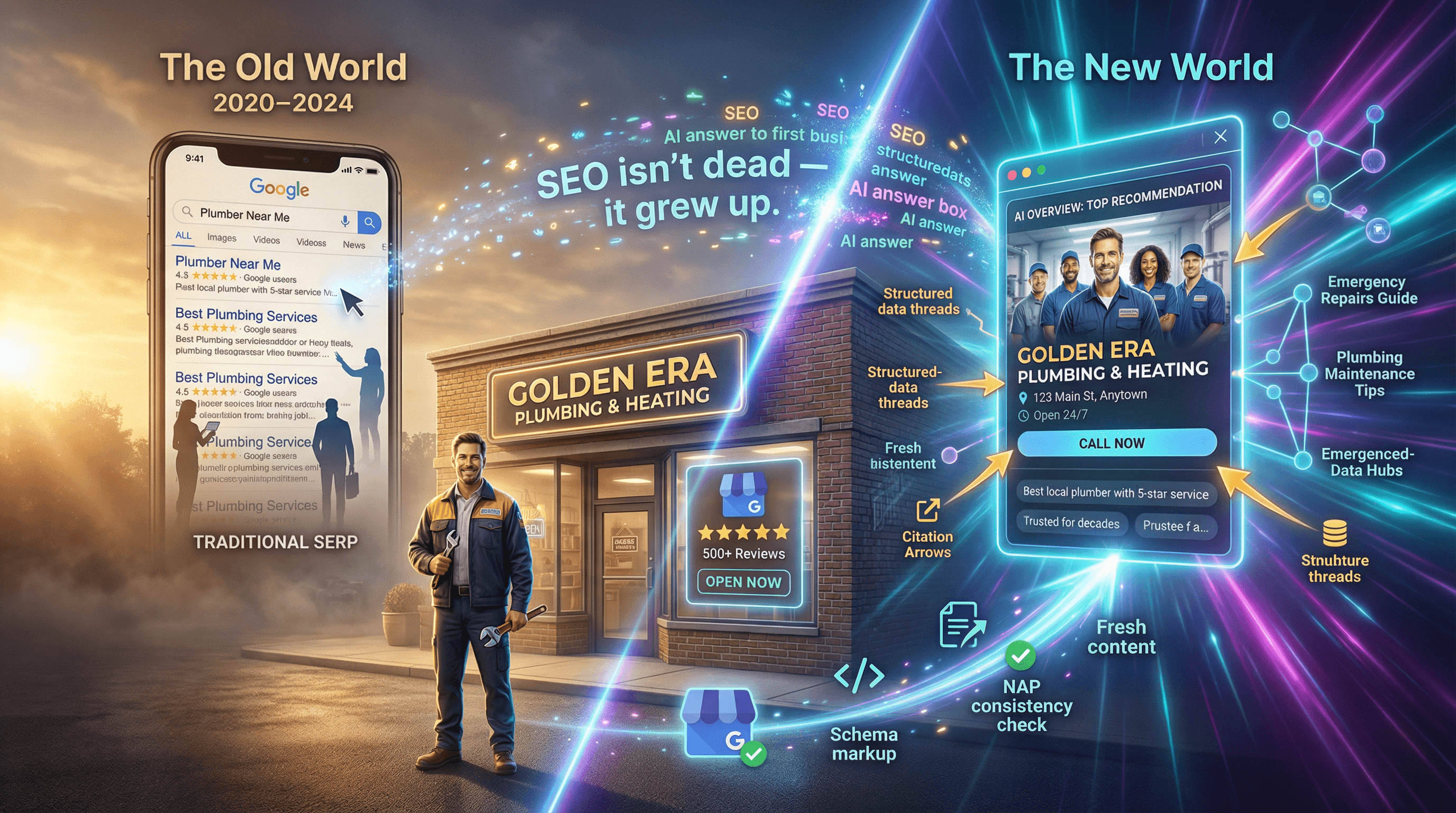Growth Partners
Forge authentic leadership by defining core values and aligning actions. A Growth Partner's guide to integrity, trust, and continuous development.
Being a leader isn't just about making decisions and telling people what to do. It's about being real, showing up as yourself, and letting your true values guide you. This guide, 'Forge Your Core Values in the Fire: Growth Partner's Guide to Authentic Leadership,' is all about that. We'll look at how to figure out what really matters to you, how to stick to it even when it's tough, and how to build trust with your team by being honest and open. Sometimes, you might even need a Growth Partner to help you on this journey.
Key Takeaways
Figure out your core values by thinking about tough times you've been through and what you learned. This helps you build your own leadership style.
True leadership means sticking to your values, even if it's not the popular choice. Integrity is more important than just being liked.
Being open about your own imperfections and really listening to others builds stronger connections and trust with your team.
Your actions need to match your words. When you lead with honesty and put your team's needs first, especially during hard times, people will trust you.
Working with a Growth Partner can help you stay true to yourself, handle the tricky parts of being authentic, and keep growing as a leader.
Understanding Your Authentic Core
Before you can lead others with conviction, you’ve got to know yourself. This isn't about having all the answers or being perfect; it's about understanding what drives you, what you stand for, and how you show up in the world. It’s the bedrock of authentic leadership, and it starts with looking inward.
Reflecting on Crucible Moments
Think back to the times when things got really tough. What were those moments that really tested you, maybe a big failure or a significant challenge at work? These aren't just stories from the past; they're actually where you learned the most about yourself. What did you do? How did you feel? What did you take away from it? These experiences are like the fire that forges steel, shaping your character and revealing your true strengths. Understanding your personal story, the ups and the downs, is the first step to figuring out who you really are as a leader.
Defining Your Leadership Philosophy
Once you've thought about those defining moments, it's time to put it into words. What's your personal take on leading people? This isn't some corporate jargon; it's your own set of beliefs about how you want to guide your team. Think of it as your personal compass. It should guide your decisions, big or small, and make sure you're always acting in line with what you believe is right. It’s about having a clear statement that anchors you, so you don't get blown off course by every little thing.
The Power of Self-Reflection
This is where the real work happens, and it’s ongoing. Making time to just think – really think – about your actions, your thoughts, and your feelings is incredibly important. It’s like checking in with yourself regularly. You can do this by journaling, meditating, or just taking quiet walks. It helps you understand why you react certain ways and what’s really going on under the surface. This kind of introspection is key to knowing yourself better and managing how you respond to things. It’s a practice that builds self-awareness, which is pretty much the main ingredient for authentic leadership.
Self-reflection isn't about beating yourself up over mistakes. It's about honest observation and learning. It’s about understanding your patterns so you can make better choices moving forward.
Forging Values Through Experience
Think about the tough times you've been through. Those moments, the real challenges, are where your core beliefs get tested and, frankly, shaped. It's not about having a perfect upbringing or inheriting a ready-made set of principles. It's about what happens when those principles are put to the test. Values that survive these trials are the ones that truly define you.
Values Forged in the Fire
Life throws curveballs, right? Maybe it was a project that went sideways, a difficult conversation you had to have, or a time you felt pressure to go along with something you knew wasn't quite right. These aren't just stories; they're the workshops where your character is hammered out. You learn what you stand for when it's inconvenient, when it's unpopular, or when it costs you something. It's in these moments that you discover if your values are just words on paper or if they're actually part of your DNA.
Integrity Over Popularity
It's easy to want everyone to like you. Seriously, who doesn't? But as a leader, that desire can be a trap. You might find yourself in a situation where the group is heading in one direction, and your gut tells you another way is better, or more honest. Sticking with the crowd just to fit in means you're not acting on what you truly believe. Authentic leaders understand that making the right call, even if it ruffles feathers, is way more important than being the most popular person in the room. Sometimes, the right decision is tough – like letting someone go or making a change that won't be welcomed. That's where courage comes in.
Challenging Inherited Beliefs
We all pick up ideas and beliefs from our families, friends, and society as we grow up. Some of these are great, but others might be outdated or even unfair. Authentic leadership means taking a hard look at these inherited beliefs. Are they really yours? Do they hold up when you examine them? It's about questioning things like biases or assumptions that might be unconsciously guiding your decisions. Getting rid of beliefs that don't align with what you consider good and right is a big step. It means your decisions are based on a solid, personal code, not just what you were told to think.
True character isn't built in comfort. It's chiseled out through struggle, much like a sculptor chips away at stone. You have to be intentional about what you keep and what you remove to reveal the true form within. This process of refinement, of chipping away at what doesn't serve you, is how you build a strong, authentic self.
The Practice of Authentic Leadership

So, you've done the hard work of figuring out what truly matters to you. Now comes the part where you actually live it. This isn't about putting on a show; it's about showing up as yourself, consistently. It means being real, even when it's uncomfortable. Authentic leadership is about aligning what you say with what you do, every single day.
Embracing Vulnerability
This is a tough one for a lot of people. We're often taught to be strong, to have all the answers. But being authentic means admitting when you don't. It's okay to say, "I'm not sure about that, but I'll find out." It's about showing your human side, the imperfections. When you're open about your struggles or uncertainties, people connect with you on a deeper level. It builds trust, believe it or not. Think about it: would you rather follow someone who pretends to have it all together, or someone who admits they're figuring things out alongside you?
Practicing Empathy and Deep Listening
This is more than just hearing what people say. It's about truly trying to understand their perspective, their feelings, their situation. When someone is talking, really give them your full attention. Put down your phone, stop thinking about your next meeting, and just listen. Ask questions to make sure you get it right. It shows you respect them and their input. It's a simple act, but it makes a huge difference in how people feel valued and understood.
Soliciting Honest Feedback
How do you know if you're actually being authentic if no one tells you? You can't see yourself clearly without input from others. This means actively asking for feedback, not just when things are going well. Ask your team, your peers, even your mentors: "What's one thing I could do better?" Be prepared to hear things you might not like. The goal isn't to get praise; it's to get information so you can grow. It takes courage to ask, and it takes humility to listen and act on it.
Building Trust Through Consistency
Trust isn't just a nice-to-have; it's the bedrock of any successful team. When people believe in their leader, they're more likely to commit, perform better, and stick around. It sounds simple, but building that trust takes real, consistent effort. It’s about showing up every day, not just when things are easy, and proving that your actions match your words.
Aligning Actions with Values
This is where the rubber meets the road. You can talk about your values all day long, but if your decisions and actions don't reflect them, people will notice. It’s like saying you value honesty but then avoiding tough conversations. That disconnect erodes trust faster than almost anything else. Think about it: when you're faced with a difficult choice, do you lean on your core principles, or do you take the path of least resistance? Authentic leaders consistently make decisions that are rooted in their solid, tangible values.
Here’s a quick way to check yourself:
Honesty: Do you communicate truthfully, even when it's uncomfortable?
Fairness: Do you treat everyone equitably, without favoritism?
Accountability: Do you own your mistakes and learn from them?
Respect: Do you value the input and dignity of every team member?
Leading Selflessly in Difficulty
Times of crisis or significant challenge are the real tests of leadership. This is when people look to you for direction and reassurance. If you prioritize your own interests or shy away from responsibility when things get tough, you’re signaling that your values are flexible. True leaders, however, step up. They put the needs of the team or organization ahead of their own, demonstrating that their commitment is genuine.
When the going gets tough, your true character shines through. It's not about being perfect, but about being present and making decisions that serve the greater good, even when it's personally costly.
The Role of a Growth Partner
Sometimes, it's hard to see yourself clearly. We all have blind spots, and it’s easy to convince ourselves we’re acting consistently when we’re not. That’s where a growth partner comes in. They can offer an outside perspective, helping you identify where your actions might be falling short of your stated values. They can also challenge you when you’re tempted to compromise your principles.
Think of it like this:
Objective Feedback: A partner can provide honest input without personal bias.
Accountability: They can help you stay on track with your commitments.
Skill Development: They can guide you in developing the skills needed to lead more effectively and consistently.
Self-Awareness: They can help you recognize and address any tendencies toward self-deception.
Navigating the Challenges of Authenticity

Being your true self as a leader sounds great, right? But it's not always a walk in the park. Sometimes, being authentic can actually get you into a bit of a bind. It’s like trying to be honest all the time, even when the truth might sting a little. That’s where things can get tricky.
The Authenticity vs. Adaptability Dilemma
This is a big one. People sometimes think being authentic means you can just say or do whatever you want, without considering how it affects others. They might use "I'm just being real" as an excuse to be blunt, unhelpful, or even rude. But that's not really authentic leadership; it's just being difficult. True authenticity isn't about being a jerk; it's about sticking to your core beliefs while still being smart about how you interact with different people and situations. For instance, if your natural style is super direct, but you notice a new team member needs more time and a gentler approach, you don't ditch your value of honesty. Instead, you adjust how you communicate to help them out. That shows you've got both integrity and care.
Mitigating the Risk of Self-Deception
It's easy to fool ourselves, isn't it? We might think we're being authentic, but we're actually just sticking to habits or beliefs that aren't serving us or our teams well. This happens when we stop really looking at ourselves and how our actions land with others. We might believe we're being fair, but our team sees something else entirely. It’s like driving with a dirty windshield – you think you're moving forward, but you're not seeing the obstacles clearly.
We need to constantly check in with ourselves and ask if our actions truly line up with our stated values, or if we're just going through the motions. This requires a willingness to be uncomfortable and to admit when we might be wrong or have blind spots.
Seeking Guidance from a Growth Partner
Trying to figure all this out alone can be tough. That's where a growth partner, like a coach or a mentor, comes in handy. They act like an objective mirror, helping you see yourself more clearly. They can help you sort through feedback, question your own assumptions, and keep you on track with being genuinely authentic. They don't tell you what to do, but they ask the right questions to help you find your own answers. It’s about having someone in your corner who can offer a different perspective when you're feeling stuck or unsure.
Here’s a quick look at how a partner can help:
Objective Feedback: They provide an outside view, free from internal office politics.
Challenging Assumptions: They can help you question why you believe certain things or act in specific ways.
Accountability: They help you stay committed to your authentic leadership goals.
Skill Development: They can point out areas where you might need to adapt your approach without compromising your values.
Cultivating Continuous Growth
Leadership isn't a destination; it's a constant process of becoming. Think of it like sculpting. You start with a rough block, and through deliberate action, you chip away the excess to reveal the form within. This is where your personal attributes come into play. What are you naturally good at? Where do you have a knack for connecting with people or solving problems? Identifying these strengths is the first step. Then, it’s about intentionally working on them, much like a sculptor refines their work. It takes effort to show up fully, day after day. Humility, knowing you don't have all the answers, and self-awareness, understanding your own reactions, are key. When you slip up – and you will – own it. Give it a name, like 'impatience under pressure,' and then figure out how to do better next time. This ongoing refinement is how you build a strong character that guides your leadership.
Leveraging Personal Attributes
Your unique qualities are the raw material for your leadership. Instead of trying to be someone you're not, focus on how your natural talents can serve your team and your goals. Are you a great listener? Use that to truly hear what your people need. Are you naturally organized? Apply that to create clear processes. It’s about using what you already have in a more focused way. This isn't about grand gestures; it's about consistent application of your best self. Developing your leadership skills is a journey, and there are many practical strategies available to help you along the way.
The Journey of Becoming Yourself
This is the long game. It’s about the daily choices that shape who you are and how you lead. It’s easy to get caught up in the day-to-day hustle, but taking time to reflect on your experiences – the good and the bad – is vital. What did you learn from that tough project? How did you handle a conflict? These moments are your teachers. They show you where you need to grow. It’s not about perfection, but about progress.
True growth happens when you're willing to look honestly at your own shortcomings and make a conscious effort to improve. It's a continuous cycle of action, reflection, and adjustment.
Partnering for Leadership Development
Sometimes, you need a sounding board. A growth partner, whether a mentor, coach, or trusted colleague, can offer a different perspective. They can help you see blind spots you might miss on your own. They can challenge your assumptions and hold you accountable to your goals. This kind of support is invaluable when you're trying to build a leadership style that's both effective and true to who you are. It’s about having someone in your corner, cheering you on and offering honest advice as you continue to shape your leadership path.
Your Authentic Path Forward
So, we've talked a lot about what it means to be a truly authentic leader. It's not about being perfect, or always being liked. It's about knowing yourself, really knowing yourself, and then acting from that place. Your values are your compass, and when you stick to them, even when it's tough, that's when people start to trust you. It's a journey, for sure, with ups and downs, but building that solid foundation within yourself is what makes you a leader others want to follow. Keep reflecting, keep growing, and stay true to what matters most.
Frequently Asked Questions
What does it mean to be an authentic leader?
Being an authentic leader means you are true to yourself. You know your values and beliefs, and you act based on them. You are open and honest with others, and you don't pretend to be someone you're not. It's like being a real person, not a fake one, when you're in charge.
Why is it important to know my core values?
Your core values are like your inner compass. They help you make good decisions, especially when things get tough. Knowing your values helps you stay true to yourself and guides your actions so you can be a leader others can count on. They are the foundation of who you are.
How can I discover my authentic self?
You can discover your authentic self by thinking about important moments in your life, both good and bad. What did you learn? What makes you happy or upset? Taking time to think about these things and writing them down can help you understand yourself better. It's like looking in a mirror to see who you really are.
Is it okay for leaders to show they are not perfect?
Yes, it's not only okay, it's actually good! Showing that you're not perfect, like admitting you don't have all the answers, makes you more human and relatable. This is called being vulnerable, and it helps people trust you more. It shows you're real.
What's the difference between being authentic and just being stubborn?
Being authentic means sticking to your core values, but it also means being smart about how you act. You can be true to yourself while still changing your approach to fit different people or situations. Just saying 'I'm being authentic' to excuse bad behavior isn't real leadership. It's about being true to yourself AND being effective.
How can a mentor or coach help me become a more authentic leader?
A mentor or coach is like a guide on your journey. They can listen to you, offer advice, and help you see things you might miss about yourself. They can challenge your ideas in a helpful way and keep you on track as you work to be a more genuine and effective leader.
























































































